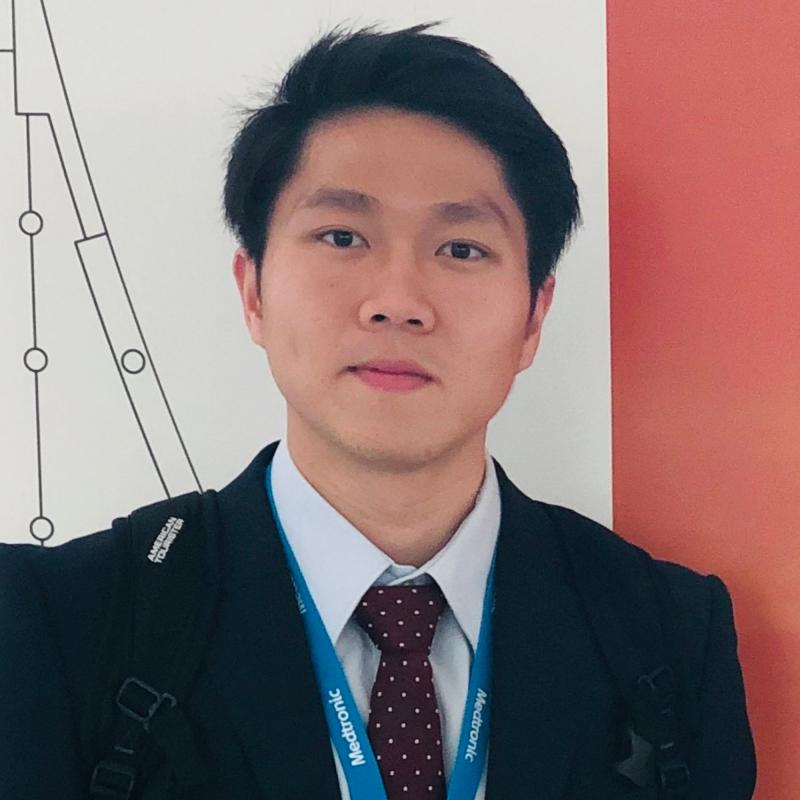Breadcrumb
From the frontline of healthcare to the frontiers of policymaking, Dr Aaron Ho (MPP 2022) is deeply passionate about the progress that can be made when people are empowered with the right tools to succeed.
He saw this first-hand on one of his first health expeditions as a doctor, when he saw that there was an unusual amount of gastroenteritis and tooth decay amongst local villagers. The solution was simple: buying toothbrushes, toothpastes and soaps and educating the villagers on dental and hand hygiene with the help of the local village leaders. Aaron was awestruck by the ‘profound effect on people’s lives’ which resulted from this ‘minute effort’, sparking his intrigue about the world of global health and prevention policies.
Aaron saw another opportunity to empower people with the right tools at the height of the COVID-19 pandemic in Singapore. Dormitories housing blue-collar migrant workers were disproportionately affected by the virus due to overcrowded living spaces. Aaron volunteered to help and was deployed to lead the data management in Sungei Tengah Lodge, which housed approximately 24,000 migrant workers. When he arrived, the COVID-19 infections were ‘spreading like wildfire’ with hundreds of new cases per day.
Aaron quickly developed a large-scale electronic data management system for the medical team to collect medical data daily. This provided crucial statistics to identify the high-risk patients with comorbidities who could deteriorate quickly so they could then be sent to hospitals. It also gave them essential information to construct epidemiological heatmaps to track COVID-19 cases accurately, enabling them to limit the spread of the disease.
Despite the long hours that it demanded, this work gave him exuberance and purpose. His outstanding contribution during the pandemic was formally recognised when he was awarded the prestigious COVID-19 Resilience Medal in 2023, a state award in Singapore.
Fighting COVID-19 on the frontline was the highlight of my entire career. If you wake up with a sense of purpose every day, you will never feel tired.
So how did he make the journey from medical doctor to MPP student at the Blavatnik School of Government? He was initially wary of politics and public policy, believing that clinical decisions should never be biased by political beliefs. But one person inspired him to learn more. One evening Aaron found himself at Oxford University’s annual Romanes Lecture, which was being delivered by Kate Bingham, former Chair of the UK Government’s Vaccine Taskforce. A remark that she made convinced him to learn more about public policy instead of avoiding it.
Kate talked about her experience of working with the Government during the COVID-19 pandemic and some of the challenges she faced. She observed a ‘notable lack of scientific skills… both among civil servants and politicians’. Aaron was already perplexed by the lack of people following social distancing measures and wearing masks in the UK, compared to his experience in Singapore, and this observation made him realise that scientific expertise could add real value in a public policy domain.
So began a year on the MPP where Aaron experienced the ‘power of community’, joining a cohort rich in ideas and experiences. Many of the students had specific experiences of working in a particular context, giving them fascinating insight into what works and how policy might be improved. This meeting of minds was the most formative part of the MPP for Aaron.
Outside the lecture hall, Aaron played pinata for the first time, at a brilliant student-led cultural night on South American culture. He also initiated the Blavatnik School’s yoga movement, which provided much-needed physical and mental respite for all staff and students from the school. He’s thrilled that this idea has now been carried on by the new cohort of MPP students.
There were 144 people from 52 countries, of different nationalities, backgrounds, cultures, and ways of looking at the world. When you put all of these people together, they combust into a very magical combination.
The MPP also allowed him to further explore his interest in policymaking, and the value of being a ‘generalist’. After conversations with his mentor and current fellow of practice at the Blavatnik School, Dr Aaron Maniam, he was able to see the value of broadening his skills and perspective. Now he sees generalisation almost as a new specialisation, crucial in the fourth industrial revolution where the agility to adapt and the ability to learn quickly is a vital skillset to remain competitive.
He is deeply grateful to the tremendous support from the entire MPP programmes team and in particular his MPP supervisor, Dr Eleanor Carter. Having gained a strong arsenal of skills from the MPP and applied those skills in his subsequent work experience at the Tony Blair Institute and the World Health Organisation, he is now excited to return to the frontline of medicine in Singapore to continue to make a difference. For a world better led, better served, and better governed, Aaron hopes that he can continue his quest of empowering people with the right tools to succeed.
January 2024.

